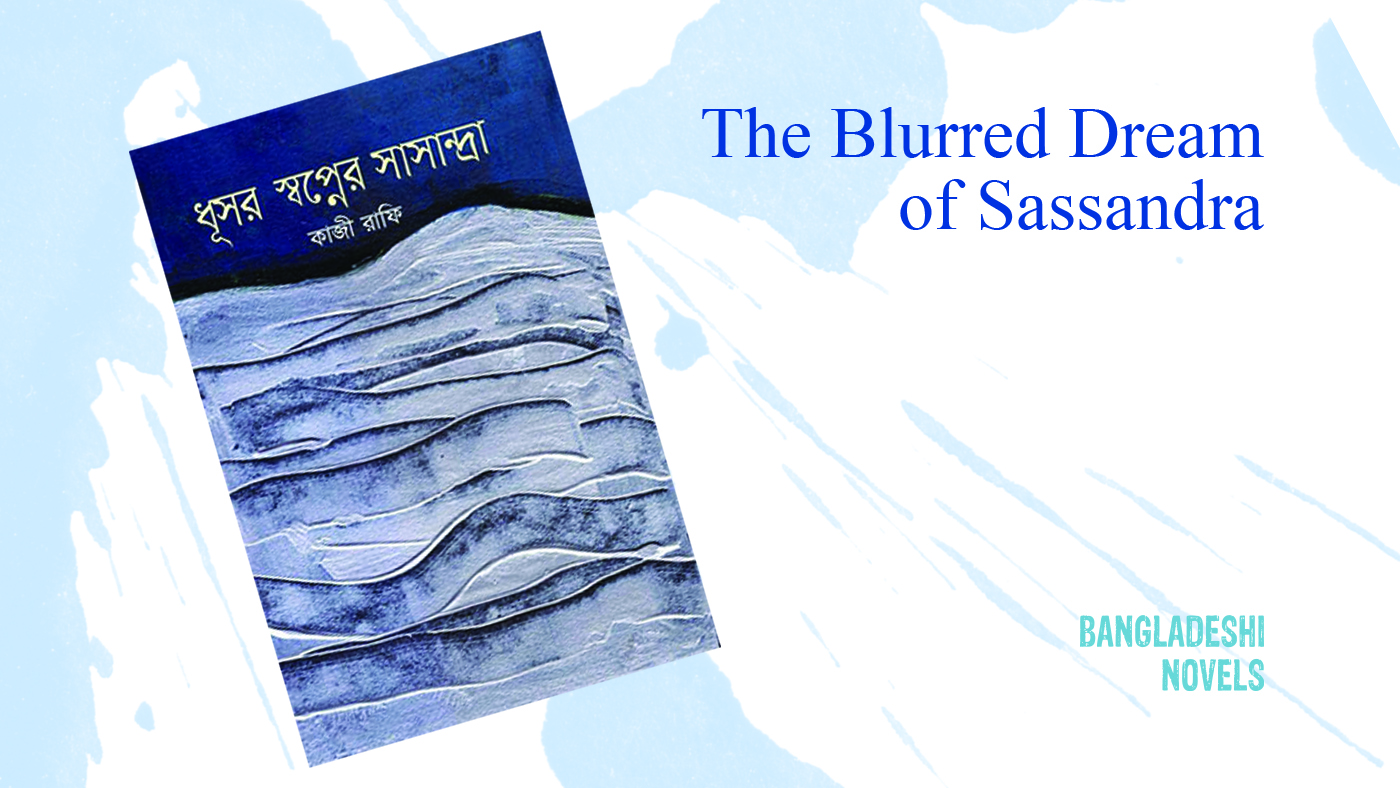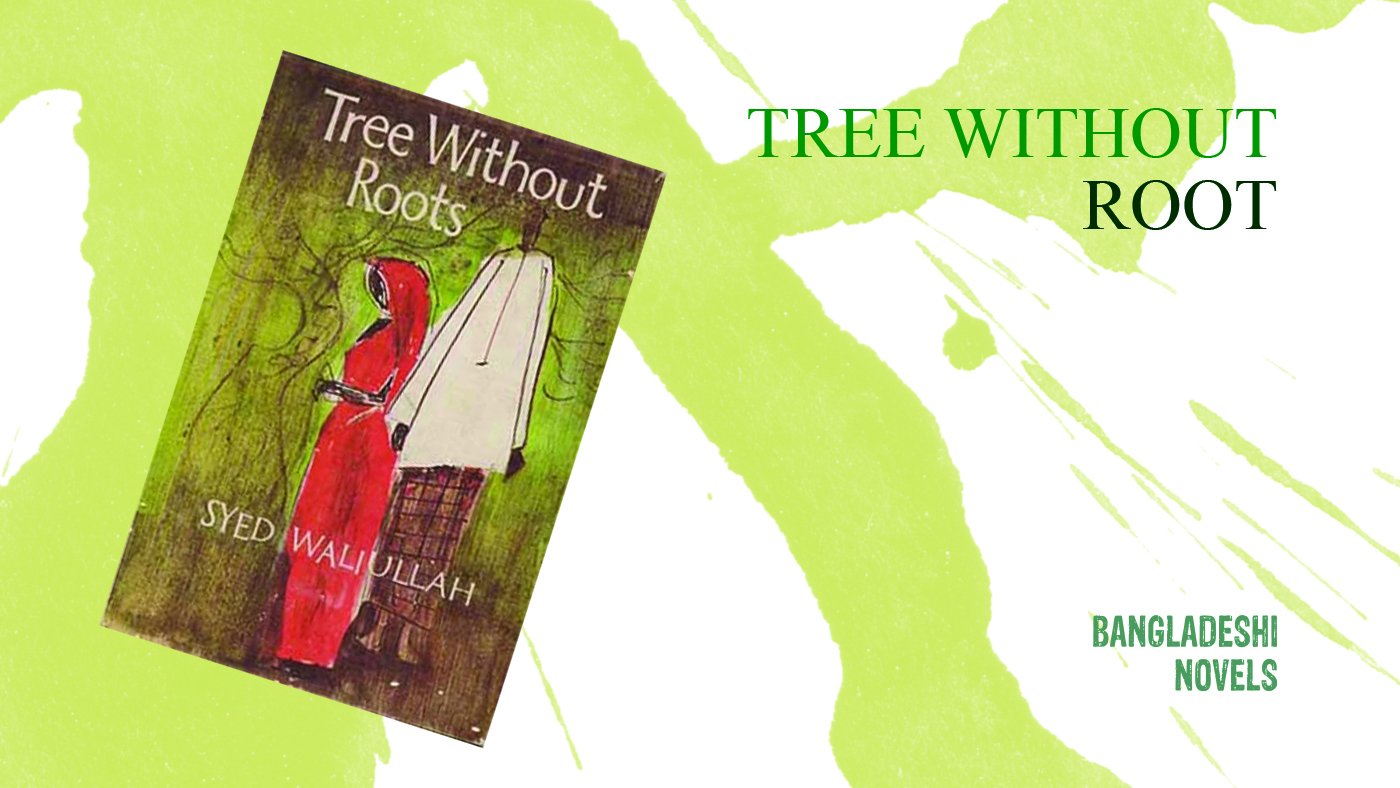Different Spring
Zahir Raihan
Translated by: Razia Khan
May 1999
Azhar Islam Bhuiyan
British mariners put up their tents here in the late hours of the night when everybody was asleep.
This part of the city was then uninhabited. Only a forest of tall, sky-kissing trees stood at this spot. During the day woodcutters collected timber from here and at night ferocious animals stalked the forest. A deep tension gripped the city. The soldiers at Lalbagh may rebel any moment. The few English families which were still there, took shelter in green boats on the river Buriganga.
British marine soldiers arrived and occupied this spot with their freshly erected tents. The place came to be known as the Maidan of Undergora.
Late at night they attacked the unarmed soldiers at Lalbagh all of a sudden. The earth at Lalbagh turned red with human blood. Some soldiers fled marching to Mymensingh. The ones who were caught were hanged in the Maidan of Undergora. The corpses were hung on the branches of trees.
This was to frighten the local populace. The natives must be shown how ruthlessly the British could punish rebels.
All these events took place a hundred years ago. The Maidan of Undergora is still there. Only the name has changed. It is now Victoria Park.
The forest has disappeared. There had been a terrible storm which tore the beautiful branches, as the tree-trunks were uprooted and fell prostrate on the ground. People said as trees had life, they could not bear the injustices inflicted on our people, by the British.
After this the soil began to be cultivated.
Houses sprang up all around. Roads were built and a big park was created to bear the name of empress Victoria.
This park was once used for public meetings. Now it is crowded in the afternoons by boys and girls who play here. The elderly rest and recline, peeling pea-nuts.
But the place is crowded only in spring and the summer months. In winter the park is empty¾no one can be seen here after dusk.
This year the winter was severe.
It was hot during the day and bitter cold at night.
The entire sky was engulfed by mist in the morning. In the lower horizons a cloud floated slowly, from north to south. It resembled frozen fog.
Underneath the floating cloud a young man walked towards Nawabpur from the side of Victoria Park from south to north. He had on a freshly washed white shirt and white trousers. His feet were bare, without shoes. On both sides of the road sat shopkeepers with their wares spread before them. The buses had just started plying. The streets were getting crowded. Busy people filled both sides of the road¾rushing to their place of work. But this boy was totally different from them. He had fresh clothes¾a pen in his pocket¾a watch on his wrist¾an exercise book in his hand. His face indicated that he came from a good family. Then why was he without shoes? It is true many people in this country were not accustomed to wearing shoes. Many of them do not have the means to wear them. Their clothes are also tardy and torn. This young man was not poor. There was a spark of aristocracy about him. Then why was he well-dressed and walking without shoes? Everyone wondered, staring at him. They wanted to know whether he was unbalanced or not.
Some of them made remarks about him. No, he was not mad. Someone close to him must have died. He was mourning this bereavement with bare feet.
Some thought this might be fashionable. There were so many new-fangled vogues these days. The month of mourning was yet to come.
The boy walked on, absorbed in his own thoughts once or twice casting cautious looks around him. He seemed to be looking for something. His restless eyes were searching the missing object. He kept looking not at people’s faces but their feet.
When he crossed Bongshal Road his face glowed with pleasure on spotting another pedestrian. He called: Hey Munim, it is this way.
Munim turned back.
His complexion was dark like night. He had a smooth face. His straight nose held his thick glasses firmly. He had on a pair of white trousers. He was also without shoes.
They looked at each other affectionately smiling. Soon after their faces grew grave and solemn. As they walked together Munim said to Asad: Mother insisted on my staying at home. She is so worried about me!
Asad replied softly: I am free from such interference. May be it is a good thing that my mother is dead. She would have created a lot of hindrance, crying and sobbing over my plight. He sighed as he said this.
Till they reached thataribazar they were only two in number. As they crossed the Railway level crossing, marching towards Gulistan, their number increased to ten.
These ten tastefully dressed young men with bare shoeless feet kept walking together.
One of them said: Don’t walk together¾it is against Rule 144¾get into smaller groups to avoid arrest.
Asad, hitherto silent, said: How frightened I was when I walked alone, now you are with me!
: You are right Asad. Same here, another boy stated.
They left Ramna post-office behind and came in front of the Railway Hospital. A police van abruptly pulled up before them. A few police-men alighted from the lorry, patrolling the area. They were in shining black shoes, khaki uniforms and steel helmets. Each carried a rifle. The boys stopped walking, looking at each other.
A long moment of silence after which they resumed walking.
Asad said: I think they stopped the lorry only to catch us.
: That is what I thought too, said another.
Munim was silent. He took out his pocket-handkerchief and wiped his face.
The orad that stood before the university had cypress trees on both sides. Every February the leaves started dripping like a soft drizzle. The leaves made an emerald carpet on the road. At dawn golden beads of dew ornamented the green carpet.
That morning the misty road was empty except for three girls coming towards the university. They wore white saris with broad borders.
One of them had plaited her hair neatly. She had faint pock-marks on her face.
The second girl was slightly plump. She had a lovely, attractive face. Her complexion was a mixture of milk and vermillion.
The third girl had abundant hair, spread all over her back. She had a big mole on his chin and her eyes were light-coloured.
Their bare feet covered with dew were moving forward rhythmically.
Ranu, Benu and Neela were three close friends.
Ranu asked: How do you feel?
Neela raised her face: About what?
: Walking, bare feet!
: Why, this is not the first time in our life that we have done this!
:No, but this is the first time that we are bare-feet on the road!
Benu laughed saying: I like it. Another girl was approaching them towards the medical college. She had on a Doctor’s apron and she also carried a stethoscope. She was obviously a medical student. On other days she would be in a pair of comely sandals. Today her feet were bare. She walked with firm steps. There was no lassitude in her determined gait.
Neela said sweetly: Are you going to your classes, Salma. Seeing her bare feet she was jubilant: So you are with us too? Wonderful!
: Yes, I am with you, Salma declared calmly.
Benu said: What about the others? Are they also without shoes
: Who?
The girls from Eden College?
: Yes, they are bare feet too?
: And the ones from Kamrunnisa Girls’ High School? What about them?
: They too are without shoes.
Four pairs of eyes shone with joy.
Ranu said: What fun!
Neela smiled at this. She looked very attractive when she smiled. Her pock-marked face grew rosy for a second and then it came back to its usual whiteness.
Neela looked back and announced: We must leave, Salma. She was about to resume walking when she stopped. Suddenly she thought of something and stopped.
: You are going alone! Aren’t you afraid of the police?
: Afraid? Her eyebrows curved; her lips trembled. She walked up towards Neela and said sharply: Afraid? There was fire in her eyes. Salma controlled herself and said calmly : My husband is in jail. So is my brother. Even my younger sister has been arrested. What do I have to fear?
The three girls felt their hearts aching for Salma. They saw her walking away. They could not utter a word. Neela broke the ice: Let us go. Her voice was cracked.
Benu said: How extraordinary!
Ranu’s eyes were filled with wonder. She turned her face towards Neela and then towards Benu.
Ranu, Benu and Neela started walking again.
After walking for a while, Ranu said: Is what Salma said, true?
: Why, don’t you believe her? Neela counter-questioned without looking at Benu who was dumb-founded.
Munim was talking to Sabur, standing in front of the university gate. He was considered crazy, by everyone. He said: What is needed is a collosal attack. He laughed like a mad man, while saying this. Munim moved away from him to buy a cigarette. He lit it from the fire in the rope that hung from the roof of the shop. Sabur spotted the three girls. He made a sour face, turning away from them.
The girls burst laughter.
: Why are you making faces? Munim asked.
: I can’t stand those girls.
: Why, what have they done?
: What can they done?
: What can they do? They are useless. Have they joined any of our movement, ever? Sabur pulled a long face. They are showing off their bare feet. Once the police come they will faint on the road.
: That’s ninsense! Munim scolded: You are mad. Sabur went on: They are good for nothing, I promise.
: Your are crazy.
Munim smiled offering Sabur the half-burnt cigarette. Now, smoke this. He walked briskly towards Modhu’s canteen.
A group of boys stood under the mango tree debating something. Seeing Munim, they rushed towards him.
One of them asked: Where should I stick the posters? The Proctor is giv ing us a lot of trouble! He won’t let us stick them here. Another asked: What happened to the wall-paper?
A third questioned: Why have the leaflets not arrived from the press, yet?
Bombarded with three simultaneous questions, Munim wiped his face with a handkerchief and assured the boys;
: Don’t worry! Everything has been taken care of. But what about the posters?
: oh yes, stick them on the walls of our union-office. Munim turned towards Rahat: Come with me to the press. Let us find out what happened to the leaflets.
Salma could not concentrate on the lecture that was being delivered.
The Professor was discussing the nervous system and she was thinking of her husband in prison.
She was often sad. Whenever she joined any procession or meeting, she missed him. She wondered how he was doing now. Her husband, Rowshan.
The last letter from him to her came, about a month back. After that there was no other letter. He used to write his letters himself with his beautiful handwriting. Now someone else transcribes the letters on his behalf.
Salma’s face became red with agony, as she thought of her husband’s missing hands.
How better life would be if he could have retained at least one of them.
In the beginning Salma was completely in the dark. She had heard of the incident of firing inside Rajshahi jail. She could neither scream nor burst into sobs. She kept staring at the sky with dumb eyes. Oblivious for a moment of all the noises of this mobile world, she held the iron grill of her window, completely speechless. In the centre of her chest, she felt a strange emptiness.
Had Rowshan died? She wondered.
Later news came of his being alive and in good health.
Salma went to Rajshahi jail to see Rowshan two months later.
In that dingy room of the jail office she felt as if a thunderstorm had exploded over her head.
The two strong arms with which Rowshan used to embrace her, were gone. Only his shirt-sleeves hung loosely from his shoulders. Rowshan propably gauged Salma’s reaction when he looked at her face closely. For a moment he was very pensive. That was the first time that Salma controlled the rising waves of sobbing. She asked softly: How are you?
: All right! As he said this in a low voice his lips trembled and his armless stumps moved a little.
Salma felt awful, finding it difficult to breathe. There was a gnawing ache in her heart. She asked openly: How do you eat? Having said this she felt embarrassed. His face turned blue.
Rowshan averted his eyes as he replied: My friends feed me. He felt as if he was choking. Salma’s eyes filled up with tears.
He might be fed by friends but how did he drop the ashes from his cigarette? How did he turn the pages of books, clothe himself? As she thought of this her heart ached even more. She remained silent for a long time. Then she asked: Were you shot on both your arms? – : yes. If the bullets hit me a few inches further, you would never see me again. Rowshan laughed as he said this. His bitter laughter reverberated in that small room and hit Salma’s ears like a deadly arrow.
She trembled. Had her husband gone mad? The paroxysm of laughter made his armless stumps tremble.
On a rain soaked monsoon night they had met for the first time, in her home at Tikatuly.
Salma was in school then. She was just a chit of a girl. The language movement of 1948 had lost its intensity. Hundreds of people had been imprisoned. Many others were under arrest.
Rowshan was one of them. He kept hiding here and there.
One rainy night rowshan came to their house with Salma’s brother.
Their clothes were drenched in rain.
Her brother dried himself and called: Salma, listen.
: Coming! As she entered her brother’s room, she felt shy on seeing Rowshan.
Tall and fair, he had very sharp features. Her brother introduced them: My friend Rowshan and here is my sister Salma, a student of class nine. Salma raised her hand to Rowshan in greeting.
Rowshan smiled and asked: Which school are you in?
: Kamrunnessa.
: He will stay with us for a month. You have to take care of him! her brother declared.
Who knew then that she would have to take care of him throughout her life?
As she stood up after her class, these old memories seemed to be like unreal dreams….








